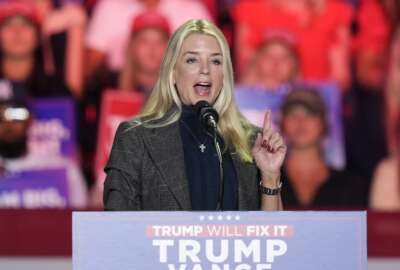GOP plan would open FEHBP to non-feds
Four senators introduced a bill that would add Medicare patients to the Federal Employee Health Benefits Plan, as Medicare is gradually phased out. The National...
This story was updated at 12:50 p.m.
Republicans critical of Medicare have proposed an alternative that would open up the Federal Employee Health Benefits Plan to Medicare patients.
On Thursday, Sens. Lindsey Graham (R-S.C.), Rand Paul (R-Ky.), Jim DeMint (R-S.C.) and Mike Lee (R-Utah) introduced the Congressional Health Care for Seniors Act (CHCSA), a bill to add senior citizens to the FEHBP.
“We are going to offer a plan that would give all senior citizens in the country the same congressional health care plan that we have,” Paul said, during the press conference announcing the bill. “We are not willing to wait until after the next election to fix the entitlements.”
Opposition from federal groups
Federal groups have expressed concern about the bill’s impact on federal employees and their benefits if it became law.
The National Active and Retired Federal Employees Association (NARFE) said the plan could shake the federal program, while asking seniors to shell out more for health care.
“This is a kill-two-birds-with-one-stone kind of proposal that would both bring down Medicare as we know it and threaten the stability of the FEHBP,” said Joseph A. Beaudoin, NARFE president, in a statement Thursday.
Beaudoin cautioned seniors to examine the proposal closely, as it throws open the doors of a stable health care program to a flood of seniors currently enrolled in Medicare.
“Given the current environment of budget attacks on federal employees, retirees and Medicare, the federal workforce and all Americans should be wary of plans like the one proposed today,” he said.
The president of federal union National Treasury Employees Union called the proposal a “disservice to the millions currently enrolled in Medicare and the more than 8 million federal employees, retirees and their families covered under FEHBP.”
The bill would “threaten the stability of FEHBP and most likely result in higher premiums from the greater risks to their health and associated costs generally incurred by an older population,” said NTEU president Colleen Kelley in a statement emailed to Federal News Radio.
Breakdown of the bill
In his executive summary of the bill, Paul said it could save taxpayers $1 trillion over its first 10 years. At the same time, it would reduce by nearly $16 trillion Medicare’s 75-year unfunded obligation. Seniors would also save thousands annually from their own health care budgets.
The key components of CHCSA include:
- Medicare-eligible seniors could enroll in FEHBP starting in 2014.
- New plans that offer superior or equal benefits to an existing plan would be able to enter the market without new mandates or requirements.
- Participating employers could provide eligible patients a choice of keeping their current plan and receiving the government’s contribution.
- Insurers would be rewarded for enrolling high-cost patients — those considered to be in the “high-risk pool.”
- Medicaid would continue providing assistance to low-income seniors.
- Over a period of 20 years, the starting eligibility age would be gradually increased from age 65 to 70 by three-month increments per year.
- Wealthy seniors would be asked to pay a greater percentage of their healthcare expenses than low-income seniors. Income thresholds from the Medicare Part B and D programs would be used.
- Transition rules would be in place to ensure continuity of services as the existing Medicare program sunsets.
“It means-tests the benefits and gradually allows the age of eligibility to go up,” Paul said, adding that millionaires would have to play the full price of their Medicare.
He said the average U.S. citizen pays $100,000 over the course of his or her life into Medicare taxes but receives more that $330,000 in benefits.
According to the bill’s summary, greater savings would come from decreased bureaucratic costs and the elimination of elements built into Medicare that provide incentives for patients and health care providers to “increase the consumption of health care.”
The Office of Personnel Management oversees the administration of FEHBP. In an emailed statement to Federal News Radio, Thomas Richards, deputy director of congressional and legislative affairs at OPM, said, “We are monitoring this bill as it moves through the process, but we have no position on the legislation at this time.”
Watch a video of the press conference conducted by Sens. Lindsey Graham (R-S.C.), Rand Paul (R-Ky.), Jim DeMint (R-S.C.) and Mike Lee (R-Utah) as they announce the Congressional Health Care for Seniors Act.
Copyright © 2024 Federal News Network. All rights reserved. This website is not intended for users located within the European Economic Area.
Michael O’Connell is senior digital editor of Federal News Network optimizing content for the best user experience. Follow @moconnellWFED
Follow @moconnellWFED






